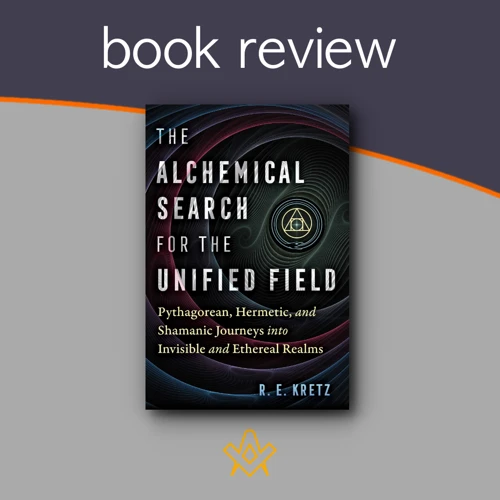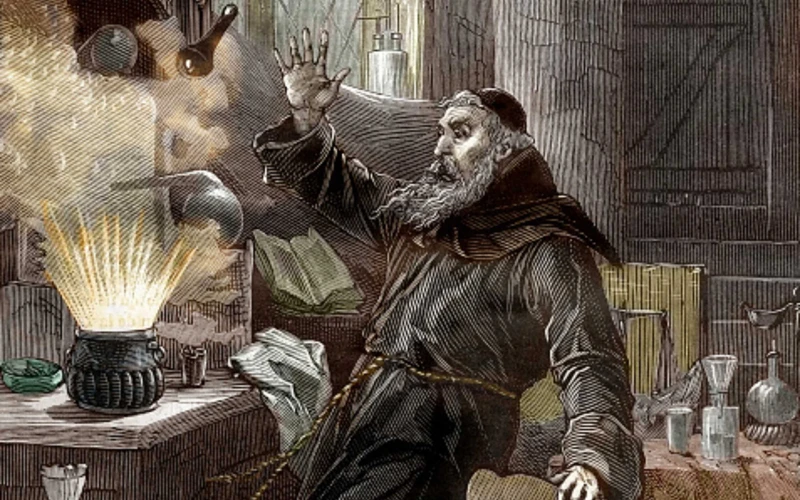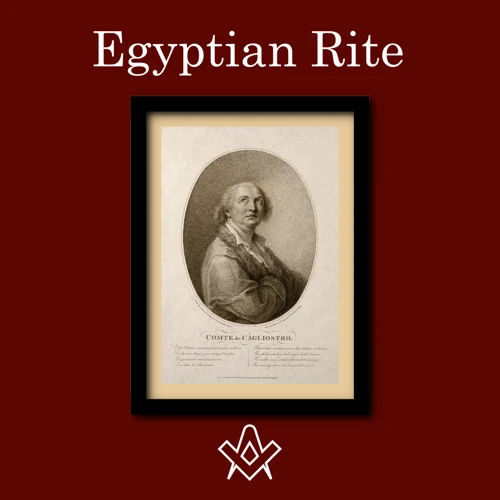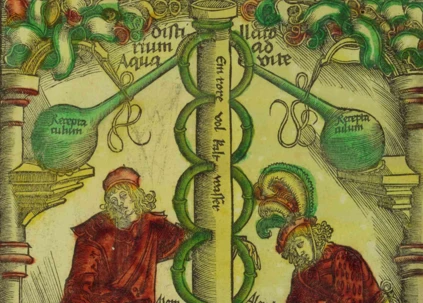Throughout history, individuals have been captivated by the idea of alchemy, the ancient practice of transforming base metals into gold and striving for immortality. Alchemists, driven by their insatiable quest for knowledge and power, dedicated their lives to unraveling the secrets of the universe. From the ancient world to the modern era, these alchemists have left an indelible mark on human history. In this article, we will delve into the lives and achievements of some of the most famous alchemists throughout history. Join us as we explore the mysteries and discoveries of these enigmatic figures who pushed the boundaries of science and mysticism.
Ancient Alchemists

Delving into the annals of history, we uncover a rich tapestry of ancient alchemists who laid the groundwork for the pursuit of transmutation and immortality. One of the most enigmatic figures is Hermes Trismegistus, the legendary sage of ancient Egypt. Known as the “Thrice-Great Hermes,” he is credited with writing the celebrated hermetic texts that expound upon the three basic principles of alchemy: Transmutation, Unity of Opposites, and Divine Correspondence. Another noteworthy alchemist is Zosimos of Panopolis, whose works were instrumental in the development of alchemy in the Hellenistic period. Zosimos explored the transformative properties of minerals, metals, and substances, laying the foundation for the alchemical practices that would follow. Lastly, we have Maria the Jewess, a skilled alchemist who made significant contributions to the field. Maria experimented with various apparatus and techniques, including the invention of the water bath, which played a crucial role in the alchemical process of distillation. These ancient alchemists paved the way for future generations, leaving behind a legacy that continues to inspire intrigue and fascination in the world of alchemy.
Hermes Trismegistus
Hermes Trismegistus, also known as the “Thrice-Great Hermes,” is a legendary figure in the realm of alchemy. Although shrouded in mystery and mythology, Hermes Trismegistus is believed to have authored the hermetic texts that became the cornerstone of alchemical knowledge. These texts, such as the Corpus Hermeticum, explore profound philosophical and metaphysical concepts that underpin the art of alchemy. Hermes Trismegistus is credited with articulating the three basic principles of alchemy: Transmutation, Unity of Opposites, and Divine Correspondence. These principles formed the basis for the alchemical pursuit of transforming base metals into gold and achieving spiritual enlightenment. The teachings of Hermes Trismegistus emphasized the interconnectedness of the physical and spiritual realms, suggesting that through the mastery of nature’s forces, one could attain higher states of consciousness and divine knowledge. While the true origins and existence of Hermes Trismegistus remain elusive, his influence on the development of alchemy cannot be underestimated. His teachings continue to inspire alchemists and seekers of wisdom to this day, serving as a beacon of mystical knowledge and spiritual transformation.
Zosimos of Panopolis
Zosimos of Panopolis was a significant figure in the development of alchemy during the Hellenistic period. Born in Panopolis, Egypt, he dedicated his life to exploring the transformative properties of minerals, metals, and substances. Zosimos’s works became foundational texts in alchemy, inspiring future alchemists with his keen observations and meticulous experiments. One of his notable contributions was his belief in the spiritual aspects of alchemy. Zosimos viewed the alchemical process as not only a means to transform substances but also a pathway to spiritual enlightenment and purification. He emphasized the importance of the soul’s journey and its purification through alchemical processes. This spiritual approach to alchemy set Zosimos apart from his contemporaries, making him an influential alchemist of his time. Zosimos also delved into the realm of practical alchemy, developing techniques such as distillation and sublimation to purify and transmute materials. His experiments and formulas laid the groundwork for subsequent alchemists to further explore the transmutation of metals. Zosimos’s teachings and insights continue to be studied by alchemists and historians alike, shedding light on the ancient origins and history of alchemy. To learn more about the three basic principles of alchemy, click here.
Maria the Jewess
Maria the Jewess, an influential figure in the realm of alchemy, made significant contributions to the field with her innovative experiments and pioneering techniques. Born in the first century AD, Maria is often regarded as one of the first female alchemists in recorded history. Her expertise extended to various aspects of alchemy, particularly the process of distillation. Maria is credited with inventing the double boiler, also known as the bain-marie, which became a crucial apparatus for alchemists in later centuries. This water bath technique allowed for gentle and controlled heating during the distillation process, enabling the separation and purification of substances. Maria’s experiments and observations greatly advanced the understanding of alchemical procedures and laid the groundwork for future developments in the transmutation of metals. Her legacy as a skilled alchemist and innovator is commemorated through her prominent place in the history of alchemy. To learn more about the origins and history of alchemy, you can explore our comprehensive article on ‘The Origins and History of Alchemy‘.
Medieval Alchemists

The medieval period saw a resurgence of interest in alchemy, with prominent figures emerging to further advance the pursuit of transmutation and the Philosopher’s Stone. Albertus Magnus, a Dominican friar and scholar, made groundbreaking contributions to alchemy and natural philosophy. His extensive writings covered various subjects, including the transmutation of metals and the properties of minerals. Another influential figure was Roger Bacon, often hailed as the “Doctor Mirabilis” for his remarkable intellect. Bacon’s works encompassed alchemy, astrology, and experimental science, advocating for the empirical approach in the pursuit of knowledge. Paracelsus, a Swiss-German physician and alchemist, revolutionized the field with his unconventional ideas. He emphasized the medicinal properties of minerals and plants, introducing a more practical and empirical approach to alchemy. These medieval alchemists paved the way for a new era of experimentation and exploration, leaving a profound impact on the development of the alchemical arts.
Albertus Magnus
Albertus Magnus, also known as Albert the Great, was a medieval alchemist whose extensive contributions to the field elevated him to legendary status. Born in the 13th century, Albertus Magnus was a prominent theologian, philosopher, and naturalist who is widely regarded as one of the greatest scholars of his time. His remarkable intellect and insatiable curiosity led him to delve into the realm of alchemy, where he made significant discoveries and advancements. Albertus Magnus was one of the first alchemists to extensively study the properties and uses of various metals in the alchemical process. His experiments and observations laid the groundwork for future alchemical theories and practices. One of his major works, the “Book of Minerals,” explored the transmutation of metals, their properties, and their role in the pursuit of the Philosopher’s Stone. Albertus Magnus believed that the true essence of metals could be extracted through careful manipulation and purification, leading to the creation of noble metals such as gold and silver. His work not only contributed to the overall understanding of alchemy but also had a significant impact on the development of metallurgy. Albertus Magnus’s dedication to the pursuit of knowledge and his profound insights continue to inspire alchemists and scholars to this day. To learn more about the intriguing world of transmutation in alchemy, you can explore our article on transmutation of metals.
Roger Bacon
Roger Bacon, born in the 13th century, was an English philosopher, scientist, and alchemist. Considered one of the most influential figures in the development of experimental science, Bacon believed in the importance of empirical investigation and observation. He advocated for a methodical approach to knowledge acquisition, emphasizing the use of experimentation and mathematics. Bacon’s alchemical pursuits were intertwined with his scientific endeavors, as he sought to uncover the secrets of nature and unlock the hidden potential of matter. In his writings, Bacon delved into topics such as the transmutation of metals and the creation of the philosopher’s stone, a legendary substance believed to possess extraordinary powers. He also explored the medicinal properties of alchemical potions and elixirs, striving to find cures for various ailments. Bacon’s contributions to alchemy bridged the gap between the mysticism of the past and the scientific methodologies of the future, leaving a lasting impact on the field. While his alchemical experiments may not have led to the transmutation of metals, his dedication to experimentation and his pursuit of knowledge laid the groundwork for the scientific revolution that would unfold centuries later.
Paracelsus
Considered one of the most influential and controversial figures in the history of alchemy, was a physician, astrologer, and alchemist during the Renaissance period. Born as Philippus Aureolus Theophrastus Bombastus von Hohenheim, he adopted the name Paracelsus, meaning “above or beyond Celsus,” a tribute to the renowned Roman physician Aulus Cornelius Celsus. Known for his unorthodox methods and radical ideas, Paracelsus challenged the traditional medical practices of his time. He rejected the prevailing view that diseases were caused by imbalances in the four humors and instead proposed that illnesses were the result of chemical imbalances in the body. Paracelsus also believed that astrology played a significant role in understanding the human body and its connection to the cosmos. His holistic approach integrated elements of alchemy, astrology, and medicine, emphasizing the importance of using natural remedies and mineral medications. Paracelsus contributed significantly to the development of medical chemistry, introducing new substances and techniques. Additionally, he pioneered the use of chemical compounds such as mercury and arsenic in medicinal treatments. Despite facing criticism from his contemporaries, Paracelsus left a lasting impact on the field of alchemy and medicine, challenging conventional wisdom and paving the way for the scientific advancements that would follow.
Renaissance Alchemists

The Renaissance period witnessed a resurgence of interest in alchemy, with scholars and practitioners making significant advancements in the field. One prominent figure during this era was the renowned Nicolas Flamel. Flamel, a French scribe and bookseller, gained legendary status for his supposed discovery of the Philosopher’s Stone, a mythical substance believed to bestow immortality and transform base metals into gold. While the existence of Flamel’s stone remains shrouded in mystery, his legacy as a revered alchemist endures. Another notable alchemist of the Renaissance was John Dee, an English mathematician, astronomer, and advisor to Queen Elizabeth I. Dee, fascinated by the occult and eager to unlock hidden knowledge, dedicated much of his life to alchemical experimentation and the pursuit of the Philosopher’s Stone. Lastly, we have Heinrich Khunrath, a German physician and alchemist who synthesized the principles of spirituality and alchemy. Khunrath’s writings explored the spiritual aspects of alchemical transformation, emphasizing the inner journey of the alchemist seeking enlightenment. These Renaissance alchemists, each with their unique contributions and perspectives, played a crucial role in shaping the development of alchemy during this transformative period in history.
Nicolas Flamel
Nicolas Flamel, a prominent figure in the world of alchemy, is often shrouded in mystery and legend. Born in Paris, France, in the early 14th century, Flamel developed a reputation as a skilled scribe and bookseller. However, it is his alleged pursuit of the philosopher’s stone that has immortalized his name in the annals of alchemy.
Legend has it that Flamel discovered an ancient book entitled the “Book of Abraham the Jew,” which contained the secrets of alchemy, including the recipe for creating the philosopher’s stone. With the help of his wife, Perenelle, Flamel diligently studied the text and embarked on a quest to unlock the secrets within.
According to the lore, Flamel successfully transmuted base metals into gold using the philosopher’s stone and achieved immortality. While these claims may be rooted in myth and symbolism, there is no denying the impact that Flamel had on alchemical thought and practice.
Flamel’s reputation grew, and his alleged wealth and longevity captured the imagination of many. His story even caught the attention of famous writers like Victor Hugo, who referenced him in his novel “The Hunchback of Notre-Dame.” Flamel also became associated with the concept of the “Flamel Cross,” a symbol believed to contain the secrets of alchemical transformation.
Whether Flamel was a true alchemist, an alchemical allegory, or a mix of both, his name has transcended time, leaving an enduring imprint on the history of alchemy. Today, Nicolas Flamel is remembered as a legendary figure, embodying the spirit of alchemical pursuits and the quest for immortality.
| Important Facts about Nicolas Flamel | |
|---|---|
| Birth: | 14th century, Paris, France |
| Notable Accomplishments: | Alleged discovery of the “Book of Abraham the Jew,” transmutation of metals, pursuit of the philosopher’s stone |
| Associations: | Perenelle Flamel (wife), the “Flamel Cross” |
| Legacy: | Immortalized in legends and literature, symbolizes alchemical pursuits and the quest for immortality |
John Dee
John Dee, a prominent figure in the Renaissance period, was not only an alchemist but also a mathematician, astronomer, and occultist. Born in England in 1527, Dee dedicated his life to the pursuit of knowledge and the exploration of esoteric arts. He is often referred to as the “Queen’s Conjurer” due to his close association with Queen Elizabeth I. Dee believed that alchemy held the key to unlocking the secrets of the universe and was deeply interested in the concept of transmutation. He conducted numerous experiments in the hopes of discovering the elusive philosopher’s stone, a legendary substance believed to have the power to turn base metals into gold and grant eternal life. Dee’s alchemical studies went hand in hand with his other pursuits, such as astrology and divination. He believed that these disciplines could provide insight into the workings of the cosmos and help him uncover the mysteries of alchemy. Dee’s rigorous research and dedication to his studies made him a respected figure in both academic and occult circles. His contributions to the field of alchemy, although not always successful in practical terms, paved the way for future advancements and shaped the understanding of the occult arts. Dee’s belief in the transformative power of alchemy mirrors the spirit of the Renaissance, where scholars sought to harness the forces of nature for personal and societal growth.
Heinrich Khunrath
Heinrich Khunrath, a prominent figure in Renaissance alchemy, was a German physician and alchemist known for his philosophical and mystical approach to the art of transmutation. Born in 1560, Khunrath studied at the University of Wittenberg and soon became deeply engrossed in the study of alchemy. He believed that the practice of alchemy was not solely concerned with the physical transformation of metals but also encompassed the spiritual transformation of the alchemist themselves. Khunrath’s most famous work, “Amphitheatrum Sapientiae Aeternae” (“Amphitheater of Eternal Wisdom”), published in 1609, explored the connection between the divine and the physical world. In this treatise, Khunrath presented intricate engravings and elaborate symbolism to convey his alchemical philosophies. He emphasized the idea of the “Philosopher’s Stone,” a mythical substance believed to possess the power of transmutation and immortality. Khunrath saw the pursuit of the Philosopher’s Stone as a metaphorical journey of self-discovery and spiritual enlightenment. His writings and teachings greatly influenced other prominent alchemists and philosophers of his time. Despite facing criticism and skepticism from some skeptics and skeptics, Heinrich Khunrath remained steadfast in his belief in the profound interconnectedness of the spiritual and material realms. His contributions to Renaissance alchemy continue to intrigue and inspire alchemical and esoteric scholars to this day.
Modern Alchemists
In the realm of modern alchemy, a new breed of thinkers emerged, fusing science, spirituality, and philosophy in their pursuit of unlocking the secrets of the universe. One prominent figure is Isaac Newton, the renowned physicist whose contributions to the scientific community are well-known. However, what is lesser-known is his deep engagement with alchemy. Newton dedicated a significant portion of his life to studying alchemical texts and conducting experiments, seeking the philosopher’s stone and the elixir of life. Another influential modern alchemist is Carl Jung, the Swiss psychiatrist who delved into the realms of the mind and the collective unconscious. Jung saw alchemy as a symbolic language that provided insights into the human psyche, and his exploration of alchemical symbolism laid the foundation for his groundbreaking psychological theories. Lastly, we encounter the enigmatic figure of Aleister Crowley, a controversial occultist who delved into various esoteric practices, including alchemy. Crowley’s writings intertwined alchemy with his own mystical and spiritual beliefs, creating a unique fusion of occultism and alchemical principles. These modern alchemists challenged conventional wisdom, pushing boundaries and blending disciplines to shed light on the mysteries of existence.
Isaac Newton
Considered one of the greatest scientific minds in history, is often hailed as a key figure in the field of alchemy. Newton’s fascination with alchemy was deeply intertwined with his pursuits in physics and mathematics. He believed that the hidden mysteries of the universe could be unraveled through a combination of empirical observation, experimentation, and mystical insight. Newton’s alchemical endeavors were driven by his desire to uncover the Philosopher’s Stone, a mythical substance believed to hold the power of transmutation and eternal life. He meticulously studied ancient texts, conducting countless experiments in his quest for alchemical knowledge. Newton’s alchemical writings reveal his dedication to understanding the secrets of nature and his belief that the study of alchemy was intrinsically linked with his scientific pursuits. While his alchemical work often goes unnoticed in contrast to his contributions to physics, Newton’s forays into alchemy showcase the breadth of his intellectual curiosity and the complexities of his thinking.
Carl Jung
One Renaissance-era alchemist who ventured into the realm of psychology was . Known for his groundbreaking work in analytical psychology, Jung had a profound interest in alchemy and saw it as a metaphorical representation of the transformation of the psyche. He believed that alchemical symbols, such as the union of opposites and the process of purification, mirrored the individuation process in individuals’ psychological development. Jung even coined the term “psychological alchemy” to describe the integration of unconscious material and the pursuit of self-realization. He saw alchemy as a language of the unconscious, a means by which individuals could gain insight into their own personal growth and transformation. Jung extensively studied alchemical texts and explored the psychological significance of alchemical imagery and symbolism. His work on alchemy, such as his book “Psychology and Alchemy,” remains influential in both the fields of psychology and alchemy. Carl Jung’s integration of alchemical principles into his psychological framework highlights the enduring relevance and depth of alchemical symbolism in understanding the human psyche.
Aleister Crowley
Aleister Crowley, a controversial and influential figure in the world of modern alchemy, emerged in the late 19th and early 20th centuries. Born in 1875, Crowley was not only an alchemist but also a magician, poet, and occultist. He delved deep into esoteric practices and rituals, drawing inspiration from a wide array of mystical and occult traditions. Throughout his life, Crowley sought to merge spirituality, magic, and alchemy, believing that the transformation of one’s inner self was synonymous with the process of transmutation. He developed his own system of spiritual attainment called Thelema, which focused on individualism and freedom of will. Crowley’s approach to alchemy was deeply rooted in the belief that the alchemist must undergo a personal transformation, known as the “Great Work,” in order to achieve spiritual and material perfection. He explored the symbolism of the Tarot and developed rituals that incorporated ceremonial magic and meditation. Crowley’s writings, such as his book “The Book of Thoth,” continue to be studied and revered by modern practitioners of alchemy and the occult. While controversial and often misunderstood, Aleister Crowley’s contributions to the world of alchemy and his exploration of the mystical and spiritual realms have left an indelible mark on the esoteric traditions of today.
Conclusion
In conclusion, the pursuit of alchemy has spanned centuries and captivated the minds of countless individuals. From the ancient alchemists who sought the secrets of transmutation and immortality to the modern alchemists who delved into the realms of psychology and spiritual transformation, their contributions have left an indelible mark on human history. Through their experiments, writings, and discoveries, they pushed the boundaries of scientific understanding and tapped into the mystical realms of the universe. While alchemy may not have achieved its ultimate goals of turning base metals into gold or finding the elixir of immortality, it laid the foundation for modern chemistry and influenced various fields, including medicine, psychology, and philosophy. The alchemists’ relentless pursuit of knowledge, their dedication to experimentation, and their ability to intertwine science and spirituality have left a lasting legacy that continues to inspire and intrigue. The alchemical journey may be shrouded in mystery and symbolism, but it serves as a testament to our never-ending quest for understanding and transformation. As we contemplate the lives and achievements of these famous alchemists, we are reminded of the profound impact they have had on our understanding of the world and our place within it. Let us continue to explore the realms of knowledge and seek the elixir of wisdom that the alchemical journey presents.
Frequently Asked Questions
Who were the ancient alchemists?
Ancient alchemists were individuals who practiced the art and science of alchemy, a discipline focused on the transformation of substances, the pursuit of the philosopher’s stone, and the quest for immortality.
What is the significance of Hermes Trismegistus in alchemy?
Hermes Trismegistus, also known as the Thrice-Great Hermes, holds significant importance in alchemy as the legendary sage of ancient Egypt. He is credited with writing hermetic texts that laid the foundation for the three basic principles of alchemy.
What are the three basic principles of alchemy?
The three basic principles of alchemy are transmutation, unity of opposites, and divine correspondence. These principles serve as the guiding principles for alchemical practices and experiments.
What contributions did Zosimos of Panopolis make to alchemy?
Zosimos of Panopolis was a notable alchemist who made significant contributions to the field. He explored the transformative properties of minerals, metals, and substances, furthering the understanding and development of alchemy in the Hellenistic period.
What inventions did Maria the Jewess contribute to alchemy?
Maria the Jewess, an accomplished alchemist, is known for her inventions in alchemical apparatus and techniques. She notably invented the water bath, a crucial tool in the process of distillation.
Who were the medieval alchemists?
Medieval alchemists were practitioners of alchemy during the medieval period. Some famous medieval alchemists include Albertus Magnus, Roger Bacon, and Paracelsus.
What were the major accomplishments of Albertus Magnus in alchemy?
Albertus Magnus, also known as Saint Albert the Great, made significant contributions to both alchemy and scholastic philosophy. He played a crucial role in integrating alchemical knowledge from both the Islamic and Western traditions.
What was Roger Bacon’s role in the development of alchemy?
Roger Bacon, an English philosopher, scientist, and alchemist, is considered one of the pioneers of experimental science. He advocated for the empirical method and emphasized the importance of observation and experimentation in alchemical practices.
Why is Paracelsus famous among medieval alchemists?
Paracelsus, a Swiss physician and alchemist, is renowned for his groundbreaking work in the field of medicine. He rejected traditional teachings and emphasized the use of chemical compounds and minerals in medical treatments, revolutionizing the practice of medicine during the Renaissance.
Who were the Renaissance alchemists?
The Renaissance period saw the emergence of influential alchemists such as Nicholas Flamel, John Dee, and Heinrich Khunrath. These alchemists made significant strides in deciphering the secrets of alchemy and contributed to its integration with other disciplines.








